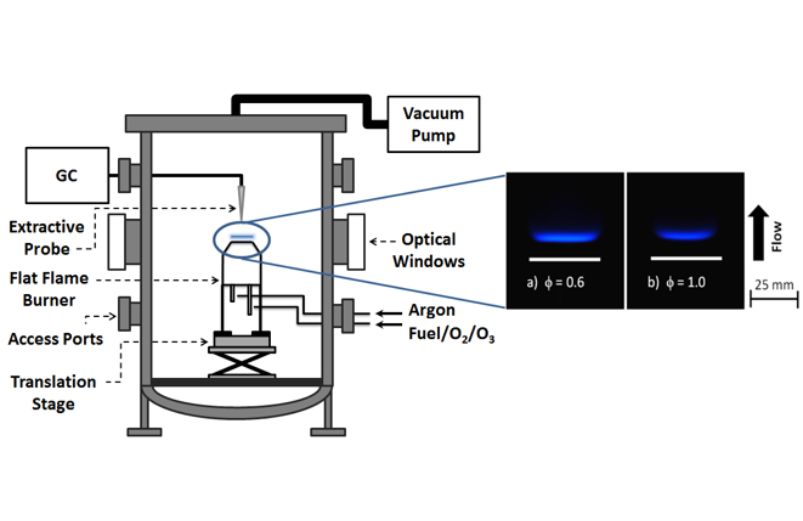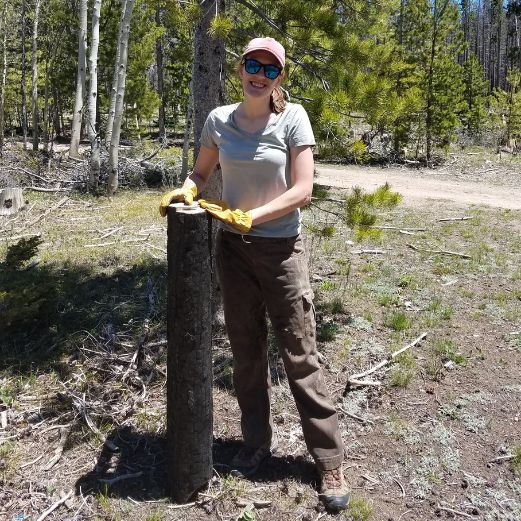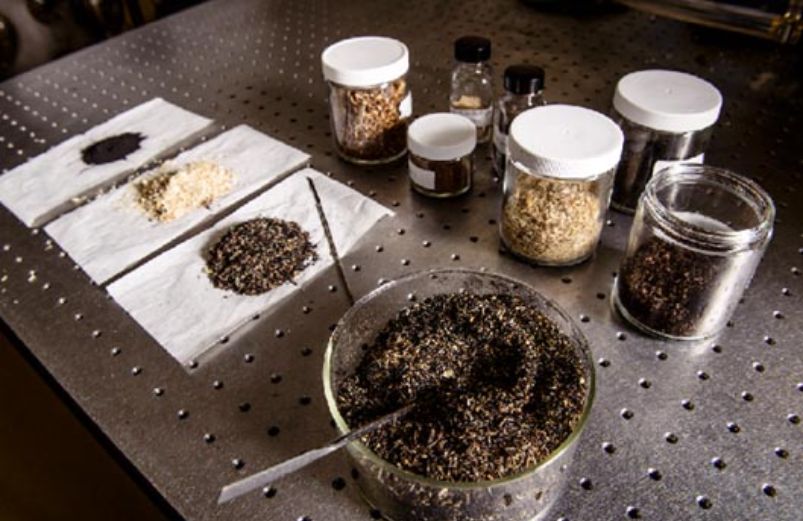LOW TEMPERATURE CHEMISTRY AND COOL FLAMES
Low temperature combustion chemistry (LTC) occurs at much lower temperatures than flame temperatures we generally experience, such as in fires and engines. However, LTC plays an important role in ignition, heat release, and products of combustion. LTC and cool flames can be harnessed for applications such as next-generation engines, but can also be destructive and lead to fire hazards. BERG conducts research into LTC and cool flames by stabilizing cool flames and taking detailed species and temperature measurements within those flames. Comparison of experimental measurements with numerical flame simulations is conducted to evaluate and develop chemical kinetics models. Additionally, BERG studies the effect of LTC on combustion phenomena such as detonations.
IMAGE: A schematic of BERG's experimental apparatus for the study of stabilized cool flames is shown, with images of freely propagating DME cool flames at lean and stoichiometric equivalence ratios (ϕ) of 0.6 and 1.0, taken with a Nikon D90 camera and lens using a shutter speed of 4 seconds and an aperture of f/1.8.

PRODUCTION AND UTILIZATION OF BIOCHAR

Biochar is a recalcitrant form of carbon that is produced via pyrolysis of biomass, whereby biomass is heated in an oxygen-limited environment. Biochar is formed naturally, such as during wildfires, and engineered for the purposes of soil amendment, carbon dioxide removal, and other purposes. BERG's investigations into biochar include characterization of biochar's properties as functions of production conditions, as well as the exploration of biochar applications, such as production of low cost and environmentally friendly battery components.
IMAGE: BERG's Alexandra Howell harvests fire-affected beetle-killed pine boles from the Medicine Bow National Forest as part of her work to quantify the amount of pyrogenic carbon formed during wildfires.
BIOMASS UTILIZATION FOR ENERGY APPLICATIONS
Biomass, including wood, grasses, and crops, can be considered carbon neutral for energy applications when carefully managed because of their relatively rapid regrowth times, during which the carbon released during their utilization is resequestered. Work to-date has focused on bark beetle-killed wood from Wyoming forests for co-combustion with coal, and pyrolysis and gasification of various biomasses for chemical and materials production. Measurement of conversion rates and characterization of products are key aspects of BERG's experimental investigations into biomass utilization.
IMAGE: Raw and pretreated solid fuels, including pulverized Powder River Basin coal and beetle-kill lodgepole pine sawdust, are shown. Pretreatment techniques, include mild pyrolysis called torrefaction, alters the raw wood such that it more closely resembles coal in composition and conversion.



